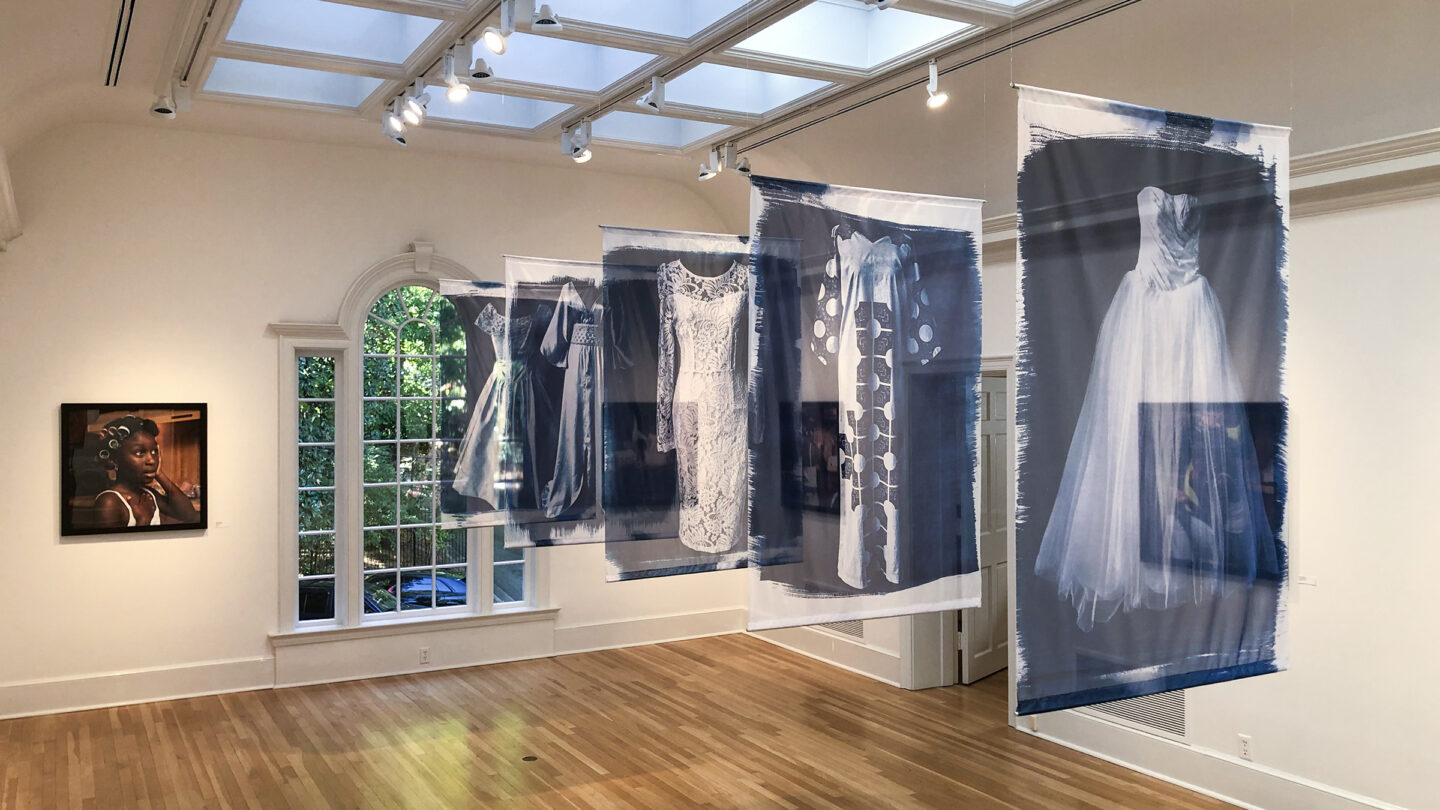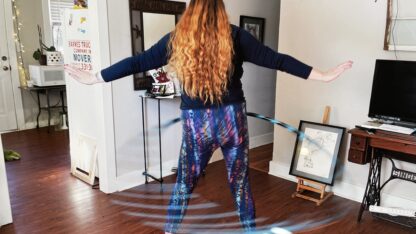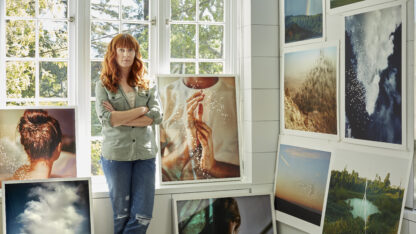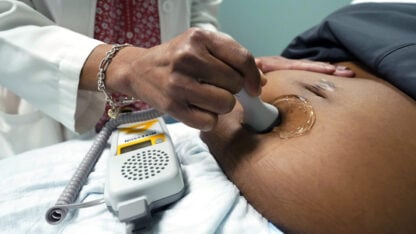The exhibit 'Re:Focus,' at Swan Coach House Gallery presents new perspectives on Black art, life, and culture

The great abolitionist Frederick Douglass was a firm believer in the power of photography. In the 19th century, he was one of the most photographed American men. He saw it as a way to showcase African-Americans with a more dignified portrayal, rather than the racist, stereotypical imagery being circulated at the time. The new exhibition “Re: Focus,” at the Swan Coach House Gallery through Oct. 27, features the works of four emerging Black women photographers. Their photographs present new perspectives on Black art, life and culture.
“City Lights” producer Summer Evans spoke via Zoom with curator Dr. Fahamu Pecou, along with two of the photographers featured in the exhibit, Stephanie Brown and Melissa Alexander.
Interview highlights:
The camera as a potential tool of oppression:
“There are a number of visual culture scholars who do work around photography and talk about the relationship between photography and racism and white supremacy, particularly the ways in which photography was used as, almost, scientific record, to document the states of man,” Pecou explained. “There were a number of projects where, to back up their theories around the ways in which different races of human beings were less than white people, that they used photography as a way to verify that. Before it was, maybe, even considered art, photography was really used in the sciences as a way of providing irrefutable evidence of certain claims that were being made.”
He continued, “Then, over the course of the history of the medium, I think we’ve seen photography being used as something to document what people would consider the exotic, or the strange, or ‘othering’ people, as opposed to trying to represent their humanity… National Geographic, for example, often used photography in a way that has been criticized as being inhumane, and documenting people in ways that, again, deprived them of their humanity.”
How “ReFocus” challenges racial bias in image-based art and documentation:
“One of the ways this exhibition attempts to do that is through reimagining what the practice and the process of photography fully entails, and this was really fully inspired by a conversation that I was having with a photographer, Dawoud Bey,” said Pecou. “Dawoud is very, very deliberate and intentional about even the language he uses when he describes his practice. He doesn’t ‘take’ pictures. He doesn’t ‘shoot’ photos with a camera. He’s very conscious of using language that is affirming. He ‘makes’ images in conversation with his subjects.”
Pecou added, “I wanted to engage with photographers who I felt had a different type of approach…. I’ve seen the ways in which they use their camera not to ‘take’ pictures, but to create experiences with photography as a medium, versus just trying to document something.”
On Melissa Alexander’s photo contribution, “Ode to Kwame:”
“When I first was introduced to Kwame Brethwaite’s work, I was doing a lot of research about 1960s and 1970s pro-Black – not propaganda, but pro-Black – films, photographs, everything… I stumbled across his name,” said Alexander. “Kwame was one of the first people to state, and proudly proclaim, that ‘Black is beautiful.’ And this was before it got a lot of traction in the late ’60s and the ’70s; he was encouraging Black folks to wear African garbs, to wear their natural hair, to be proud of who they are in a society that shames us, that attempts to make us feel ‘less than,’ and I love that. His photographs of Black women, specifically, are usually pretty simple, but there’s so much grace, and there’s so much beauty and strength and pride.”
Stephanie Brown on her nude portrait series “Like Love:”
“These images are highly contrasted, black and white, chiaroscuro lighting style images that are intentionally a little illustrative, really detailed just in the playing of light and shadow, and for me, I refer to many of them as ‘vignettes’ of different perspectives and body parts of Black women,” said Brown. “They really communicate a really private opportunity for the person who’s being photographed… I’m ‘co-creating’ with the person that I’m photographing. I think some behind-the-scenes information is that I actually spend a couple of weeks interviewing the women that I photograph, and it’s not a pass-or-fail kind of interview, but I’m really looking for an opportunity to know more about them, and know more about, what are the things that they might be fighting with within themselves?”
“Re:Focus” is on view at the Swan Coach House Gallery through Oct. 27, with an artist talk Oct. 15 at 3:00 pm. More information is available at https://www.swangallery.org/








